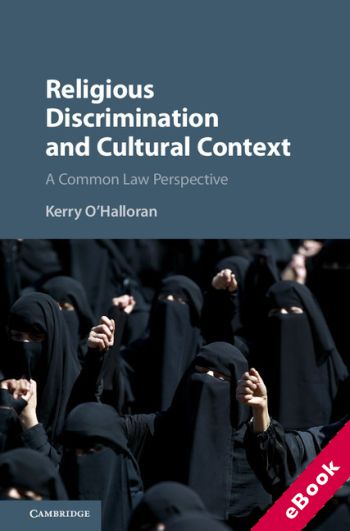
The device(s) you use to access the eBook content must be authorized with an Adobe ID before you download the product otherwise it will fail to register correctly.
For further information see https://www.wildy.com/ebook-formats
Once the order is confirmed an automated e-mail will be sent to you to allow you to download the eBook.
All eBooks are supplied firm sale and cannot be returned. If you believe there is a fault with your eBook then contact us on ebooks@wildy.com and we will help in resolving the issue. This does not affect your statutory rights.
Generations of festering culture wars, compounded by actual wars in predominantly Muslim countries, the terrorism of Isis and the ongoing migrant crisis, have all combined to make religious discrimination the most pressing challenge now facing many governments. For the leading common law nations, with their shared Christian cultural heritage balanced by a growing secularism, the threat presented by this toxic mix has the potential to destabilise civil society.
This book suggests that the instances of religious discrimination, as currently legally defined, are constrained by that cultural context, exacerbated by a policy of multiculturalism and in practice conflated with racial, ethnic or other forms of discrimination. Kerry O'Halloran argues that many culture war issues – such as those that surround the pro-choice/pro-life debate and the rights of the LGBT community – can be viewed as rooted in the same Christian morality that underpins the law relating to religious discrimination.